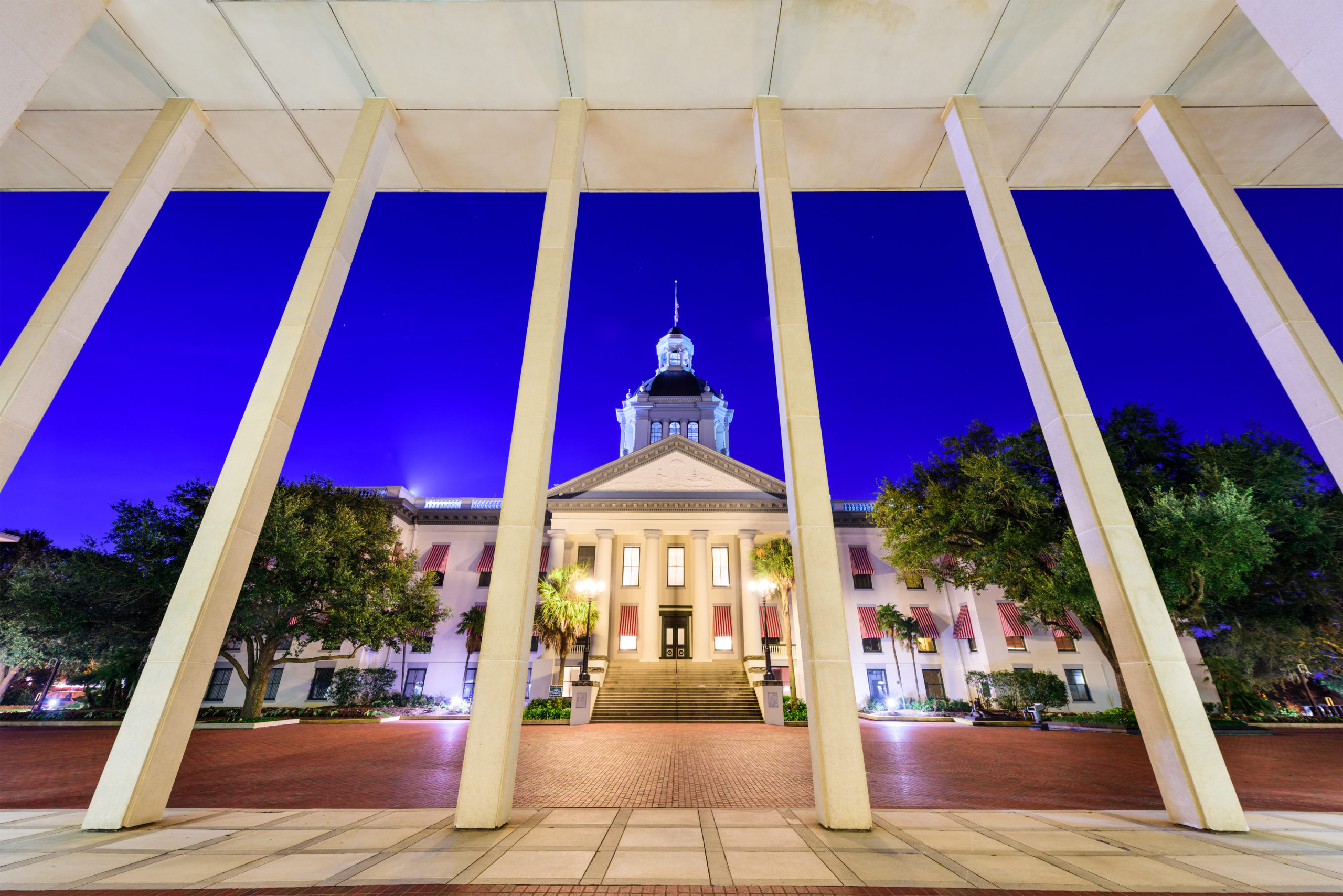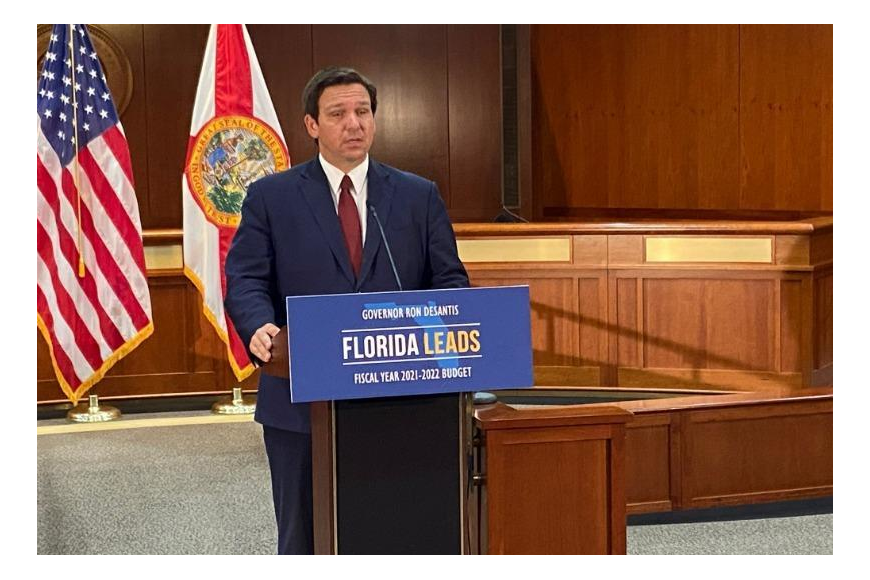Introduction
The 2021 Florida Legislative Session is slated to start on March 2nd, and this year is unlike any other. With a nearly empty Capitol building, elected officials and their staff are working diligently through the pandemic to pass legislation crucial to Florida’s needs.
Ensuring education and training is aligned to Florida’s workforce demands in the economic recovery and beyond has proven to be a priority for leadership in the House and the Senate. For example, in the House, Speaker Chris Sprowls (R – Palm Harbor) unveiled a new committee structure that combines workforce and education emphasizing career readiness and lifelong learning. Of the approximately 2,560 bills proposed to date, which are best poised to impact postsecondary access and attainment for Florida students?
This preview includes some of the top budget priorities and proposals to watch this session.
Budget
According to the Florida Office of Economic and Demographic Research, Florida’s economic forecast shifts to the negative with an estimated -0.5% GDP from the 2019-2020 FY. However, the latest estimating conference predicts a turnaround for the 2020-21 FY with a GDP projection of +0.5%.
Governor Ron DeSantis’ recommended budget for the 2021-2022 Fiscal Year—Florida Leads—outlines his priorities for the coming year with a record-breaking $96.6 billion in funding. Although this marks a $4.3 billion increase from last year, $2.6 billion is earmarked for expenses related to COVID-19.
The Governor continues to support the mission outlined in Executive Order 19-31—Charting a Course for Florida to Become Number 1 in the Nation for Workforce Education by 2030 and Ensuring Florida Students are Prepared for the Jobs of the Future —by continuing to fund programs promoting college completion, student retention, and career and technical education. The budget allocates $27.1 billion for education including $1.2 billion in state operating funds for the Florida College System (FCS) and $2.7 billion for the State University System (SUS). The budget maintains funding for the Pathways to Career Opportunities Grant Program ($10 million), Performance Based Incentives for CTE students at school district technical centers and Florida Colleges ($20.5 million), and performance funding for Florida College System and state universities. Additionally, the Governor’s Recommended Budget includes $21 million for the Florida Postsecondary Academic Library Network that provides essential library and virtual learning resources to the state’s public colleges and universities. As in the Governor’s budget recommendations last year, there are no increases in tuition and fees at Florida’s colleges and universities.
Policy
CS/SB 52 and HB 281 — Postsecondary Education
Bill Sponsors: Senate Education Committee, Senator Ray Rodrigues (R – Fort Myers) and Representatives Wyman Duggan (R – Jacksonville) and Ardian Zika (R – Land O’ Lakes)
CS/SB 52 establishes the Dual Enrollment Scholarship Program administered by the Department of Education (DOE) within the requirements adopted by the State Board of Education (SBE). The program will provide reimbursements to eligible postsecondary institutions to cover the cost of tuition and materials for private and home-schooled students enrolled in a dual enrollment program during the fall or spring semester. These reimbursements will also be available to private, public, and home-schooled students during the summer, beginning in 2022. The bill also requires all participating institutions to provide the DOE student-level data on participation and success.
Senate Bill 52’s companion bill HB 281, championed by Representatives Duggan and Zika, also establishes the Dual Enrollment Scholarship Program but has slightly different language and provides additional legislative intent for the policy.
 SB 86 — Student Financial Aid
SB 86 — Student Financial Aid
Bill Sponsors: Senator Dennis Baxley (R – Ocala)
Filed last week, SB 86 proposes changes to Florida’s financial aid programs to maximize the value of aid for students and taxpayers by focusing on targeted programs that directly lead to employment. The bill proposes to limit state financial aid programs to cover a max of 60 credit hours unless or until the student enrolls in a “market-driven degree program” list compiled by the Board of Governors (BOG) and State Board of Education (SBE).
SB 86 would also make significant changes to Florida’s Bright Futures Scholarship Program. The bill would:
- Return the Florida Academic and Florida Medallion Scholars to a flat-rate per credit hour amount annually appropriated in the budget and reduce the award by the number of credit hours the student earned in high school through accelerated programs such as dual enrollment.
- Create additional eligibility options for high school graduates. Beginning in 2022, students who earn an associate’s degree through dual enrollment, or receive a score of “3” or higher on six AP exams, will be eligible for Bright Futures (six scores of “3” or higher for FMS and six scores of “4” or higher for FAS).
- Amend current regulation that allows students who have unused Bright Futures hours to apply them towards graduate programs by specifying that these graduate programs must be included on the aforementioned list of approved programs.
Finally, SB 86 expands financial aid opportunities to low-income and nontraditional learners by creating two new state aid programs. The Florida Bright Opportunities Grant Program is a last-dollar grant awarded to Pell Grant-eligible students that will cover remaining tuition and/or fees at a Florida college or career center after exhausting all other federal and state aid. The award also includes a book stipend. The bill also creates the Florida Endeavor Scholarship, which will grant tuition and fees for eligible students enrolled in a certificate or high school equivalency program. Students become eligible for the scholarship by earning 225 clock hours while maintaining a 2.5 GPA.
SB 128 — Florida Talent Development Council
Bill Sponsors: Senators Jennifer Bradley (R – Orange Park) and Manny Diaz (R – Hialeah Gardens)
Reintroduced this year, SB 128 examines the possibility of bringing P-TECH, an innovative education program model that blends high school, community college, and workforce training in a comprehensive 4-6 year program, to Florida. SB 128 tasks the Florida Talent Development Council with producing a report on the feasibility of establishing a P-TECH program in Florida that allows students to earn their high school diploma, AA, and work experience within six years.
 HB 175/SB 508 — Apprenticeship and Preapprenticeship Training
HB 175/SB 508 — Apprenticeship and Preapprenticeship Training
Bill Sponsors: Representative Jason Shoaf (R – Blountstown) and Senator Jeff Brandes (R – Saint Petersburg)
HB 175 and SB 508 expand the reporting requirements for apprenticeships and preapprenticeship programs. Both bills require the department of apprenticeship training to develop instructions for partnerships between local educational agencies and private apprenticeship program sponsors. Additionally, the department is charged with creating a set of criteria for apprenticeship programs to attain a status of “high performing.” “High-performing” program sponsors will be eligible for direct reimbursement from the department.
SB 202 — Standard High School Award Diploma Requirements
Bill Sponsors: Senator Janet Cruz (D – Tampa)
Beginning with incoming students in the 9th grade during the 2022-23 school year, SB 202 makes completion of the Free Application for Federal Student Aid, or FAFSA, a requirement to earn a standard high school diploma. It also provides conditions for students or parents to be exempted from the requirement by writing a letter to the school district.
HB 503/SB 888 — Sunshine Scholarship Program
Bill Sponsor: Representatives Felicia Robinson (D – Miami Gardens), Dottie Joseph (D – Miami), and Carlos Smith (D – Orlando), Senator Shevrin Jones (D –Miami Gardens)
Establishes the Sunshine Scholarship to provide full tuition and fees, after deducting other financial aid sources, for eligible students who attend a Florida College System institution or career center. To qualify, students must have a household income of $50,000 or less, complete the FAFSA, and maintain continuous full-time enrollment with a GPA of 2.5 or higher. Additionally, after graduation or disenrollment, students who received the scholarship must live in the state for the scholarship award’s equivalent time or repay the award amount with interest.
 SB 624 — Guidance Services
SB 624 — Guidance Services
Bill Sponsor: Senators Randolph Bracy (D – Orlando) and Janet Cruz (D – Tampa)
Requires each school district to ensure that school counselors in public high schools inform students about education and employment opportunities in apprenticeship and preapprenticeship programs, dual enrollment programs, career and professional academies, technical centers, internships, and CTE pathways.
HB 845 — State University Free Seat Program
Bill Sponsor: Representative David Smith (R – Winter Springs)
HB 845 creates the State University Free Seat Program to encourage nontraditional students to enroll in college. This program would provide Florida residents, as outlined in statute, who have not been enrolled in a university for the past five years with one tuition-free online course at a state university. State universities would be prohibited from charging students eligible for the program more than 75% of the cost of tuition as long as they remain enrolled in at least one online course each year. This tuition discount would apply to 110% of the credit hours required for the student’s degree program.
HB 791/SB 1042— Workforce and Postsecondary Education/ Vocational Pathways
Bill Sponsors: Representative Joe Harding (R – Ocala) and Senator Jason Brodeur (R – Lake Mary)
SB 1042 and its identical companion HB 791 include several provisions to encourage and expand students’ access to work-based learning opportunities. The bill encourages school districts to provide students with paid work experiences through work-based learning opportunities and expands the entities eligible to sponsor apprenticeships. The bill also changes the FTE funding calculation and the bonus structure for school districts producing students who graduate with industry certifications.
SB 1042 and HB 791 also remove the requirement that students must achieve a minimum score on a common placement test for initial entry in a dual enrollment program. Instead, the student would have to demonstrate college-level communication and computation skills.
Finally, these bills require career education programs to include in their articulation agreements at least three mathematics pathways that align with meta-majors and career tracks. It also requires convening a workgroup consisting of academic affairs administrators and faculty from FCS and SUS institutions to identify the three aforementioned pathways.
SB 1042 and HB 791 have a similar companion bill in SB 366 – Apprenticeship and Preapprenticeship Training from Senator Travis Huston (R – St. Augustine). While SB 366 includes many of the same provisions as SB 1402 and HB 791, it also has language to classify all minors, middle, and high school students enrolled in a preapprenticeship program as state employees for the purpose of workers’ compensation
 SB 1108 — Education
SB 1108 — Education
Bill Sponsors: Senator Manny Diaz (R – Hialeah Gardens)
SB 1108 focuses on testing requirements for students graduating high school and entering college. The bill requires school districts to administer the ACT or SAT to every public-school student in the district free of charge. Additionally, beginning with the 2021-2022 school year, students entering an FCS or SUS institution for the first time must pass an assessment and successfully complete a course on civic literacy. Students who pass the high school-level assessment in US Government will be exempt from the postsecondary assessment.
Other relevant bills:
In addition to the above legislation, members have filed several other bills that stand to impact Florida’s students. House Bill 671 and Senate Bill 824 expand the Bright Futures Scholarship Program eligibility to include students who have a felony on their record. House Bill 1261 and Senate Bill 1798 authorize a scholarship program to completely cover the cost of tuition and fees for eligible students pursuing a degree in STEM, education, healthcare, or other approved programs in critical demand. House Bill 923 and Senate Bill 300 expand state financial aid eligibility to include immigrants who meet the conditions for an out-of-state fee waiver. However, House Bill 6037 would eliminate the current out-of-state fee waiver for immigrants altogether. Finally, House Bill 1273 and Senate Bill 1728 expand fee waivers to include eligible students with a grandparent who is a Florida resident.
Senate Bill 264 and House Bill 233 seek to evaluate intellectual freedom on college and university campuses by administering a survey to students and has other provisions allowing students to record their classes for personal use. House Bill 847 creates the Florida Postsecondary Academic Library Network to provide Florida’s public postsecondary students with online academic support, a shared catalog and search tool of books and resources, and digital academic texts. Senate Bill 258 and House Bill 531 create the “Florida Internship Tax Credit Program,” which would authorize a corporate income tax credit up to a specified amount to a qualified business paying wages to certain degree-seeking students during the student’s internship at the business.
On the subject of career centers, House Bill 1033 allows students who have been awarded their certification of completion to enroll in career center programs. Additionally, House Bill 135 and Senate Bill 532 allow career centers to offer an associate degree in applied science or an associate in science degree nursing program to students who have already graduated from a licensed practical nursing program from the same center.


